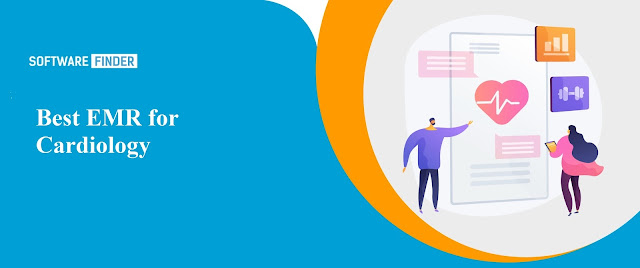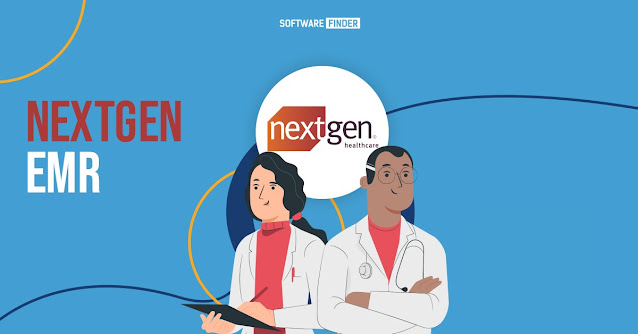Best Cardiology EMR Software 2022
A cardiology EMR is an electronic medical record (EMR) software that helps physicians manage patient records and keep track of their patient's medical histories. These software programs are usually HIPAA-compliant and meet industry standards for security and Meaningful Use. There are several different types of cardiology EMR, and we'll explore some of the benefits of each type of software. Let's get started! Which Cardiology EMR Software is Right For You?
Cardiology EMR Software Features
Some cardiology EMR software features are crucial for a practicing physician. A comprehensive solution should allow you to store and retrieve vital patient information, create encounter notes, and integrate diagnostic data. Encounter notes can be edited, saved for retrieval, and printed or faxed as needed. Another feature that you must look for in a cardiology EMR is document management. You can organize specialized scans and reports in folders and make charting easier with SOAP notes.
Whether you practice cardiology surgery or routine care, cardiology EMR software has the features you need to keep track of patient information. It can automatically send lab test reports and patient details, reducing paperwork and improving your patient care. This software can help you create orders and referrals quickly and accurately. You can also track and store off-site diagnostic imaging, which is crucial for your practice. Using cardiology EMR software, you can save time, eliminate paperwork, and improve patient care with its many benefits.
Cardiology EMR Benefits
The benefits of cardiovascular EMR software are numerous. Aside from providing the clinician with an easy-to-use interface, cardiology EMR software like AdvancedMD EHR allows him to create patient folders. These folders are easy to access, so clinicians can prepare charts quickly. They also have the ability to track patient progress. Aside from making it easier for physicians to treat patients, these programs also reduce the workload of medical staff. Consequently, cardiologists can spend more time on patient care and less time on paperwork.
Another benefit of cardiology-specific EMR software is that it streamlines billing. Cardiologists can easily import and export information from patients' charts to statements. Besides this, some systems can be integrated with billing software to ensure faster payments. Because cardiac issues can be life-threatening, cardiologists need access to accurate and timely information. The benefits of cardiology EMR software will help them meet these goals and improve the patient experience.
Integration with medical devices
One of the best ways to ensure seamless data flow between your medical office and the EMR is to integrate the two systems. Many EMRs offer connectivity with medical devices, such as fax machines and scanners, which will expedite data gathering and transfer. Integration will also increase provider engagement. This type of collaboration can help prevent costly errors and streamline care. In addition to maximizing your EMR system's functionality, integration with medical devices will improve your workflow, increase patient satisfaction, and increase overall practice efficiency.
To effectively integrate medical devices into your EMR, you should start with a good plan. There are a number of ways to achieve this. First, you should make sure that the software that you are considering is capable of working with your hospital's existing infrastructure. Secondly, you should be able to customize the platform to meet the needs of your facility. Once you know your needs and your budget, you can start shopping for a system that suits your needs.
Customized Templates
When searching for cardiology EMR software, look for one that provides customized templates for physicians. This way, physicians can easily create the exact records they need to make their work more efficient. For example, they can use customizable templates for lab results and patient histories. In addition, this type of software supports HL7 interfaces, which significantly reduces claims rejections due to missing authorizations. Other features of cardiology EMR software include a comprehensive reporting system and an integrated modern billing system.
The quality of a cardiology EMR software will depend on its ability to integrate with heavy medical devices and generate accurate medical reports. The software should have analytical tools that help cardiologists interpret their data and develop effective diagnosis reports. This feature will help them monitor the progress of their patients. Another feature to look for in a cardiology EMR is one that is user-friendly. A good EMR will integrate with your current medical billing system and ease the migration process between different systems.
For More: Allscripts EMR Software Review, Latest Updates & News
Rx Helper
Cardiology EMR software helps physicians and other medical professionals to organize patient records in an efficient and effective manner. Whether it is a single office or a network of several, this program can help to increase the workflow and ensure that patients get the services they need when they need them. The software features several helpful features, including authorization verification at the time of check-in and posting of charges. It also offers robust reporting capabilities and handles the total receivables for patient visits.
A good cardiology EMR software can help to streamline and automate your practice's data management process by ensuring proper diagnosis coding. The software can provide direct connectivity with billing software to ensure faster payment for cardiology services. Its data analysis capabilities allow doctors to quickly produce results and track patient progress. Cardiologists are particularly time-sensitive and often need to receive life-threatening lab results quickly. Cardiology EMR software also allows physicians to verify ICD-10 and CPT codes. This is essential for medical billing, as timely payment is a key factor in keeping patients happy and healthy.




Comments
Post a Comment